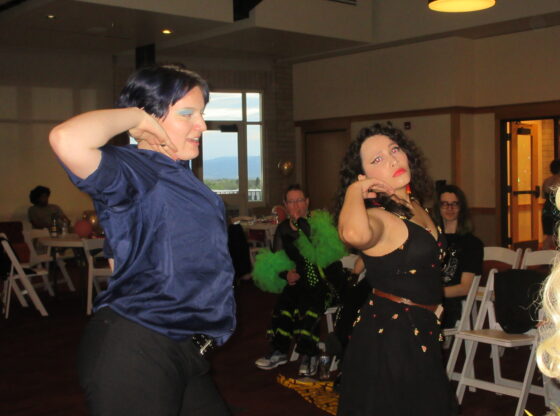True crime has a grip on pop culture. From podcasts to full recreations of crimes, it feels like every time blood splatters, a camera crew and team of writers aren’t far behind.
The most recent addition to this murder mania is “Monsters: The Lyle and Erik Menendez Story.” Created by Ryan Murphy, who received criticism two years ago due to his insensitive portrayal of Jeffery Dahmer, this show is plagued by similar issues.
The Menendez brothers were convicted of patricide in 1996. The show explores the parental abuse they endured that cultivated the killings and the resulting trial.
Despite the series’ sympathetic approach to the events, Erik Menendez has denounced the show, saying it is rampant in “blatant lies.” While an argument can be made that this statement is in his best interest, Murphy’s history of dramatizing real events supports this claim.
While the show may be based on a true story, it sensationalizes certain events to make for a more captivating watch. The reporter Anne E. Schwartz, who broke the story about Dahmer, said that Murphy’s project “does not bear a great deal of resemblance to the facts of the case.”
But when the show is marketed as a recreation of the crimes, people will trust its credibility. As a result, the victims are rewritten because their real stories will not maximize viewership. It’s not enough that they are remembered respectfully and privately. Netflix can make more money when they depict their suffering.
Rather than learning from the backlash, Murphy doubled-down, creating a narrative about the Menendez brothers that is based on shock value rather than fact.
There are various scenes that hint at an incestuous relationship between the brothers that has no record of occurring, causing some critics to liken the show to fan-fiction. It’s an unnecessary and frankly, perverse choice that does nothing to help the public image of the brothers, a reason Murphy claims the show was made.
Furthermore, the show’s tone is inconsistent. Moments are played campy and seem self aware of the series’ exaggeration, leaning into the style. This may work in Murphy’s other projects like “American Horror Story,” but it feels misplaced here. The show flops from obvious caricatures to sober depictions of assault, tainting the attempts at bringing awareness.
The line between apparent comedy and genuine portrayals of abuse blurs, minimizing the potential impact the show had to influence the narrative around male victims of sexual assault. Because the series toes the tonal line, it can be hard to tell what’s meant to be an exaggeration and what’s real.
In stories based on real life, there will always be a level of unknowns. While testimony may offer a sequence of events, there’s lapses in time, conversations behind closed doors and motives that God only knows. In lieu of these answers, Murphy makes his own, treating the people he’s depicting as characters; thereby creating a show that puts whatever amounts to the most compelling story above what serves the victims.
Ultimately, true crime hinges on the pain real people suffered with creators like Murphy building a career on top of it. While he can claim that the shows are meant to bring attention to the victims, this seems disingenuous as he does not donate any profits to charities working to end the issues he supposedly cares so much about. In addition, victims in both the Dahmer and the Menendez case have stated they find Murphy’s portrayals harmful.
He may hide behind the victims saying they are who the show is meant to serve, but he takes every opportunity to upstage them.











